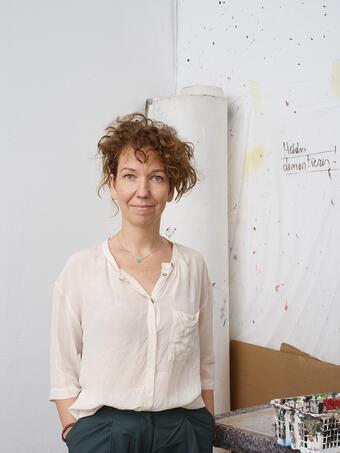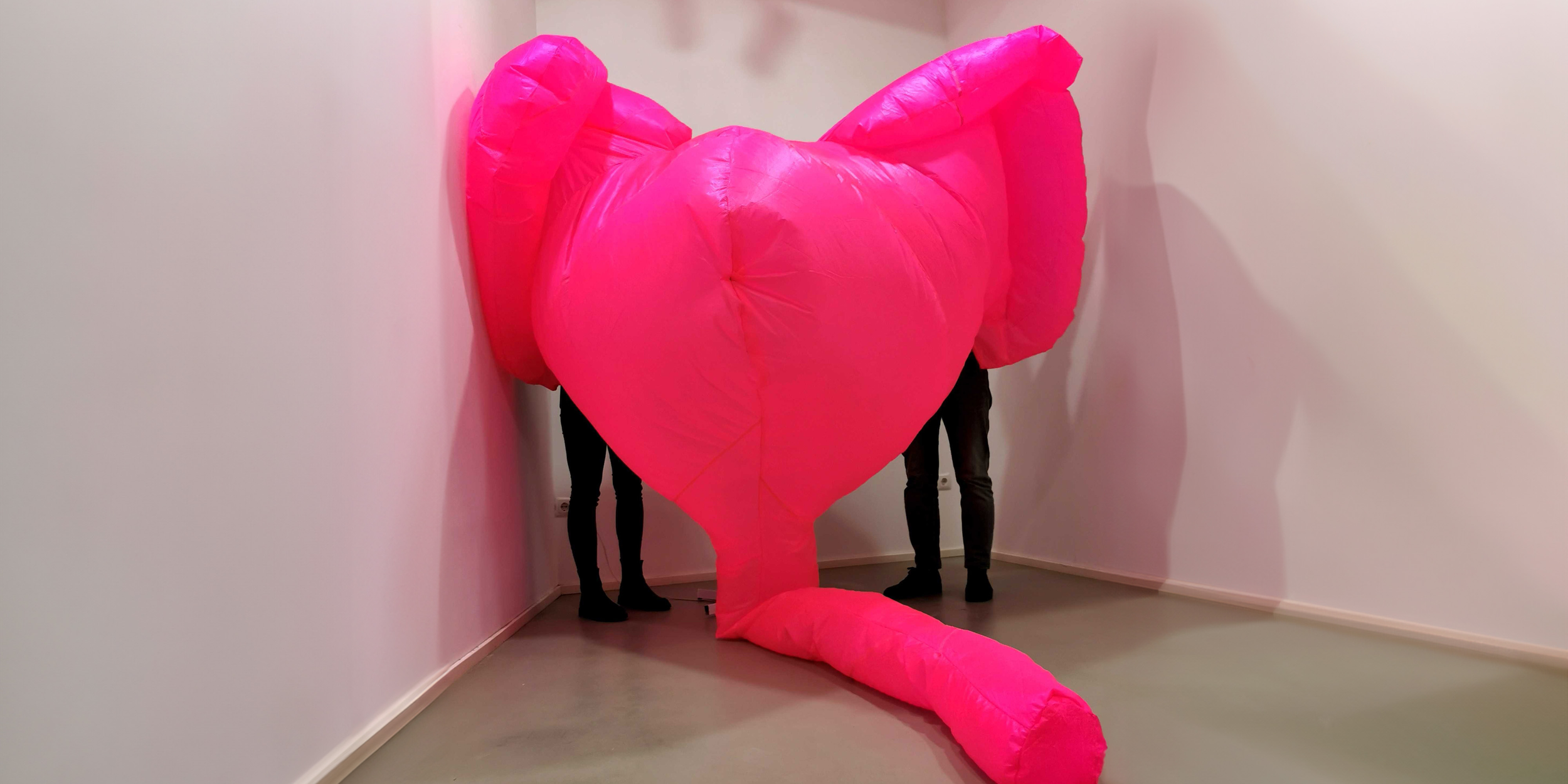
Univ.-Prof. of Graphic Arts & Painting / Art Education / Representative for the Study of Art and Craft Education Innsbruck

Visual arts education in Innsbruck has set itself the task of imparting knowledge, skills and techniques so that we can orient ourselves in this visual and digital world, understand it and help shape it artistically. Having acquired these skills during their studies, students can use them in the classroom to prepare their pupils competently for a world characterised by social and media diversity.
Department of Studies & Examinations
+43 676 88122 492
studienabteilung@moz.ac.at
Length of course
8 semesters / 240 ECTS credits
Language
German
Application period & portfolio submission
1.2.–10.6.2025
Admission examinations
Please note the information under "Registration for the entrance examination", "Examination to determine artistic aptitude" and "Application portfolio"!
to the dates
Downloads
It is precisely the practice of the arts that is able to bring to our attention and critically address social transformation processes, such as those in the age of digitality; the arts often pick up on changes faster than other areas of society, processing them aesthetically and thus making them accessible.
In order to sharpen this differentiated, sensory-reflective perception and put it into practice, the degree programme in Art Education goes far beyond the learning of techniques, material skills and digital applications. The focus on the artistic process leads to a deeper understanding of the visual arts based on individual practice. This is accompanied by critical analysis and questioning of one's own work, and positioning it in dialogue with the reference systems of historical and current discourses as well as socially relevant topics. Producing art and displaying it in exhibitions represents a meeting point of artistic and pedagogical activities, which are expanded through strategies of interaction, participation and teaching.
In Art Education - in the sense of pedagogical engagement with the visual arts and visual culture - we are dealing with diverse forms of knowledge. Considering such forms in their diversity from an artistic and pedagogical perspective always requires an open mind and a constant questioning of traditional positions, but in this age of digitality and cultural diversity, completely new pedagogical and artistic challenges arise. For us, this raises the question of what Art Education might look like in future.
To find an answer, we must explore the current social, cultural, political, technical and geographical changes both artistically and theoretically, and attempt to fundamentally rethink education.
The teacher training programme for secondary education consists of a Bachelor's and a Master's programme and trains students to become teachers in their chosen subjects.
The Bachelor's degree programme in Secondary Education is designed to be completed within 8 semesters. Two teaching subjects must be chosen, in addition to which students are required to complete free elective subjects, a general grounding in educational science, and integrated teaching placements. The subject Art Education can be combined with any other subject.
The bachelor's degree programme in Art Education provides basic training in both the subject itself and its didactics, as well as educational sciences and teaching practice. It provides the preliminary professional training for a teaching career at middle and high schools.
In addition to the teaching profession, graduates also well qualified to enter professions outside of school: in the field of fine arts, art education, conceptual work in art and cultural institutions, independent work with children and young people, art and cultural studies, academic as well as artistic research or in the context of adult education.
Specialising in in aesthetic and cultural education opens up promising opportunities in not only in education, academia or in the field of social work, but also in the world of business and commerce, as there are many areas of overlap. Artistic approaches or creative problem-solving processes certainly play a role in the development of new commercial products and applications.
Depending on the subject with which they combine Art Education, students can already choose a stronger focus in artistic and practical work or on academic research and eudcational work during the course of their studies.
The teacher training programme at secondary level is carried out in cooperation with the following partner institutions (Western Region Partnership):
Art education is studied as one of two subjects within the Austrian teacher training programme; the subject Art Education can be combined with any other subject. In addition to their two teaching subjects, students will complete courses in educational sciences as well as teaching placements in schools.
The subject-specific part of the degree programme is divided into three major areas, which are interlinked by the common interest in the artistic and research-based approach to the production, reception and teaching of art, images and media: Subject didactics, subject studies and artistic practice.
Subject didactics comprises lectures, exercises, proseminars and seminars. These address the understanding of the subject of art education, its historical development, the institutional framework and guidelines. They provide impulses for reflection on the activity as an art teacher and suggestions for the development of different approaches and methods for teaching the subject matter.
With its lectures, exercises, proseminars and seminars, subject studies courses offer fundamental insights into the central content taught in the school art curriculum: art and architectural history, art and image theory, media and everyday life history, environmental design and cultural studies.
Art practice focuses on practical engagement with art. In four classes: Painting, Drawing and Printmaking, Sculpture and Photography/New Media, students can explore a wide range of means of expression and attitudes to art production. The structure and approach of the classes makes it possible for students not only to perfect their skills in each of the areas, but also to benefit from a multimodal way of engagement.
For admission to the Bachelor's programme, various certificates and examinations are required:
The teaching subject Art Education must be combined with a second subject. An overview of all teaching subjects offered by institutions within the Western Region Partnership can be found here.
The General Admissions Procedure for all teaching degress (regardless of subject) consists of several steps:
Please check the Western Region Partnership website for exact dates and procedures.
Registration for the entrance examination takes place via the application portal Muvac - for information, see 'Registration for the entrance examination' (above).
Registration may only be made for one location, either Central Region (for Salzburg and Linz) or Western Region (for Innsbruck). Multiple registrations at different locations are not permitted and will be cancelled.
Documents required for online registration
Form of the documents
Artistic entrance examination
The artistic entrance examination consists of a practical examination and an oral examination.
Practical examination on 7.7.2025 from 8:30 a.m., to last all day:
Examination interview:
Candidates will be informed of the results of the entrance examination by email around 2-3 weeks later. Applicants who have registered for the entrance examination and are subsequently unable to attend must deregister in good time.
The works included in the portfolio should showcase the applicant's interests, abilities and potential. When choosing which works to include, candidates should bear in mind that the examination panel wishes to see their skills across a range of themes and techniques.
Please note:
The application portfolio must be submitted by the application deadline (10.6.2025)!
Link to data protection information (in German)
We also offer (non-mandatory) portfolio consultations. Contact us to arrange an online appointment if you wish - we are happy to help you!
You can find more information about starting your studies here: